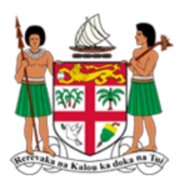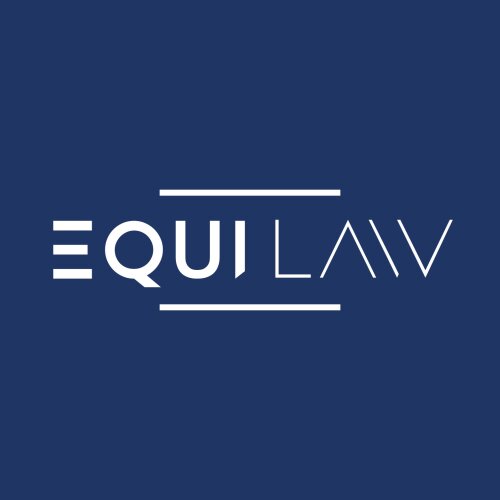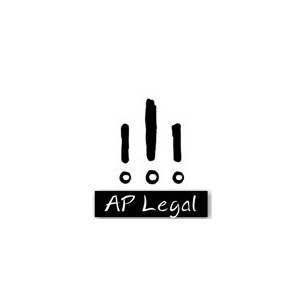Best Public-Private Partnerships (PPP) Lawyers in Suva
Share your needs with us, get contacted by law firms.
Free. Takes 2 min.
List of the best lawyers in Suva, Fiji
About Public-Private Partnerships (PPP) Law in Suva, Fiji
Public-Private Partnerships (PPP) refer to contractual arrangements between public sector bodies and private sector entities to finance, build, and operate projects that serve the public interest. In Suva, Fiji, PPPs have become increasingly important for infrastructure development, including roads, utilities, schools, and hospitals. The Fijian government views PPPs as a way to leverage private sector expertise and funds to deliver public services more efficiently and effectively. PPP initiatives in Suva operate within a legal framework that ensures transparency, promotes competition, and safeguards public interest.
Why You May Need a Lawyer
Engaging in a PPP project can be complex due to the intricate legal, financial, and regulatory arrangements involved. You may need a lawyer for several reasons including:
- Drafting or negotiating PPP contracts and agreements
- Advising on regulatory requirements and compliance
- Conducting due diligence for proposed PPP ventures
- Managing risk allocation and dispute resolution
- Addressing issues related to land use, property rights, or environmental regulations
- Representing your interests with government authorities or private partners
- Interpreting or challenging the legality of PPP frameworks or project implementation
Whether you are a government official, a private company, or a community stakeholder, legal guidance is crucial to protect your interests and ensure successful participation in PPP projects.
Local Laws Overview
PPPs in Suva, Fiji are influenced by a combination of national legislation, government policies, and sector-specific rules. Some important aspects of local laws include:
- PPP Policy and Guidelines: The Fijian Government has established PPP frameworks and guidelines that set out procedures for project identification, procurement, contract management, and project monitoring.
- Public Procurement Regulations: The Ministry of Economy oversees procurement processes to guarantee fairness, competition, and transparency in selecting PPP partners.
- Land Laws: Land tenure in Fiji is regulated by the iTaukei Land Trust Board, State Lands Act, and other statutes, which should be considered in PPP projects involving land.
- Investment Laws: The Fiji Investments Act and related regulations address foreign and local investment in PPP projects, including approval and licensing requirements.
- Sectoral Regulations: Projects in utilities, transport, or health must also comply with sector-specific legislation and regulatory bodies’ requirements.
- Environmental Laws: Projects must adhere to the Environment Management Act which mandates environmental impact assessments and safeguards.
It is important to consult local legal professionals to properly navigate these legal frameworks and ensure compliance at every stage of the PPP project.
Frequently Asked Questions
What is a Public-Private Partnership (PPP)?
A PPP is a collaborative agreement between a government agency and a private company to finance, build, and operate projects or services traditionally provided by the public sector.
Who regulates PPP projects in Suva, Fiji?
The Ministry of Economy, together with sector-specific ministries and regulatory authorities, oversees PPP projects. They enforce procurement regulations, project guidelines, and contract management.
What types of projects are suitable for PPP in Suva?
Common PPP projects in Suva include infrastructure development such as roads, bridges, water and electricity supply, hospitals, and public housing.
Do I need government approval to participate in a PPP?
Yes, private sector participants must undergo a government procurement and approval process which ensures transparency and alignment with public priorities.
Can foreign companies participate in PPPs in Fiji?
Yes, but foreign entities must comply with the Fiji Investments Act and obtain approval from Investment Fiji and other relevant authorities before participating.
What are the key risks in PPP projects?
Key risks include project delays, cost overruns, regulatory changes, revenue uncertainties, and disputes over contract terms or land use.
How are PPP contracts structured?
PPP contracts typically detail project scope, financing, risk allocation, performance standards, dispute mechanisms, and procedures for termination or handover.
What happens if there is a dispute in a PPP project?
Disputes are usually resolved through negotiation, mediation, or arbitration as specified in the contractual agreement. In some cases, court proceedings may be necessary.
What land laws affect PPP projects?
Land ownership and use in Fiji are governed by laws overseeing iTaukei (indigenous), state, and freehold land. It is essential to ensure proper land tenure and obtain necessary consents.
Do PPP projects require environmental approvals?
Yes, all significant PPP projects must conduct environmental impact assessments and obtain permits in compliance with the Environment Management Act.
Additional Resources
For further information or assistance on PPP projects in Suva, Fiji, consider contacting:
- Ministry of Economy - Oversees national PPP policies, guidelines, and procurement processes
- Investment Fiji - Assists with investment approval and support for foreign investors
- iTaukei Land Trust Board - Manages leases and permissions for indigenous land use
- Fiji Roads Authority and sectoral agencies - Regulate and manage infrastructure-related PPP projects
- Fiji Environmental Protection Agency - Responsible for environmental approvals and compliance
- Fiji Law Society - Can help you locate legal professionals specializing in PPPs
Next Steps
If you are considering involvement in a PPP project or require legal advice related to PPPs in Suva, Fiji, you should:
- Identify the scope and nature of your intended PPP project or legal concern
- Gather relevant documentation and information about the project site, stakeholders, and regulatory history
- Consult with an experienced local lawyer who specializes in PPPs for preliminary advice
- Contact the appropriate government agencies to clarify regulatory and approval requirements
- Work with your legal advisor to prepare applications, conduct due diligence, and develop or review contracts
- Stay informed about legislative changes and best practices in PPPs through professional networks or seminars
Proper legal counsel and preparation are essential for navigating the PPP process successfully and safeguarding your interests throughout the lifecycle of a project.
Lawzana helps you find the best lawyers and law firms in Suva through a curated and pre-screened list of qualified legal professionals. Our platform offers rankings and detailed profiles of attorneys and law firms, allowing you to compare based on practice areas, including Public-Private Partnerships (PPP), experience, and client feedback.
Each profile includes a description of the firm's areas of practice, client reviews, team members and partners, year of establishment, spoken languages, office locations, contact information, social media presence, and any published articles or resources. Most firms on our platform speak English and are experienced in both local and international legal matters.
Get a quote from top-rated law firms in Suva, Fiji — quickly, securely, and without unnecessary hassle.
Disclaimer:
The information provided on this page is for general informational purposes only and does not constitute legal advice. While we strive to ensure the accuracy and relevance of the content, legal information may change over time, and interpretations of the law can vary. You should always consult with a qualified legal professional for advice specific to your situation.
We disclaim all liability for actions taken or not taken based on the content of this page. If you believe any information is incorrect or outdated, please contact us, and we will review and update it where appropriate.

















